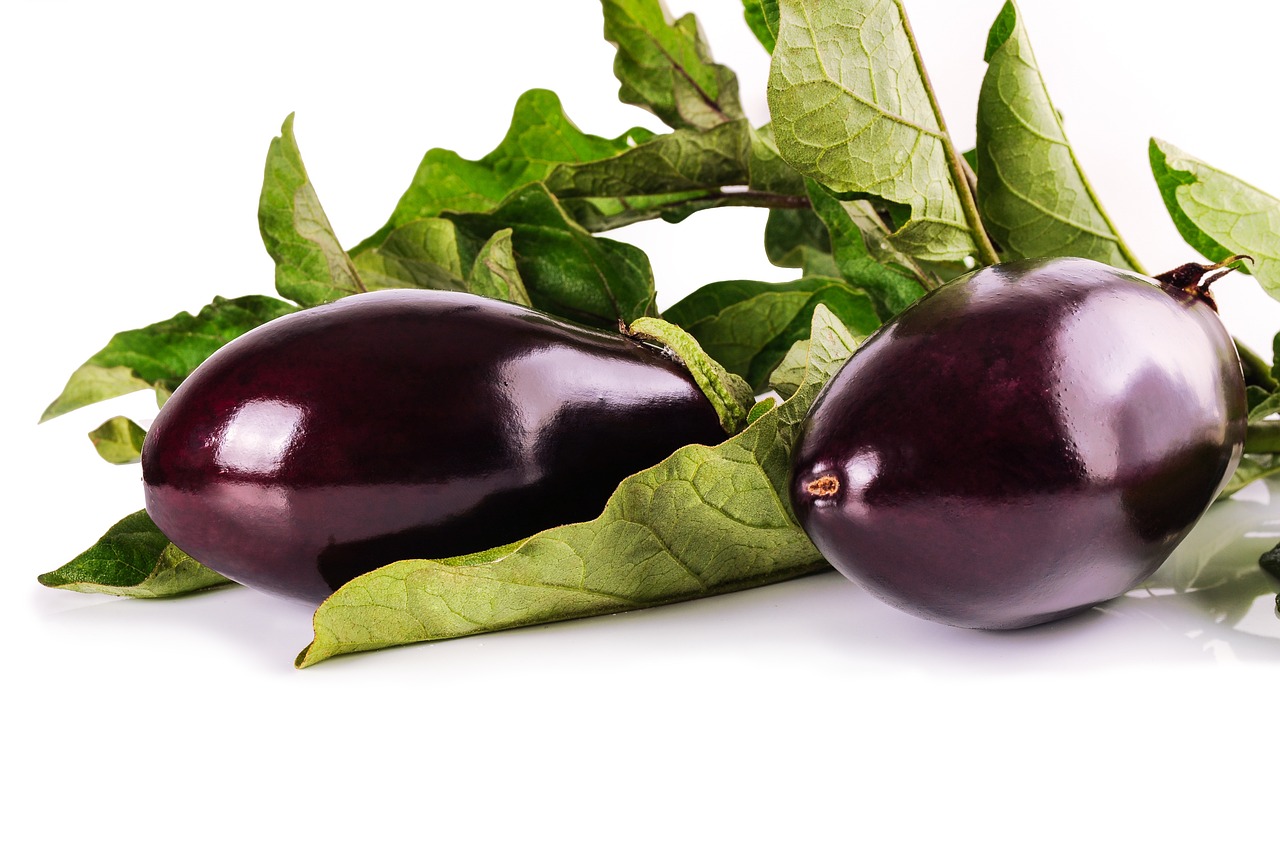Nutrition
Benefits of eating fruits daily

The benefits of eating fruits daily are many because they contain many important and necessary minerals and vitamins for the body in addition to their ability to serve the beauty of women as they make the skin healthier and softer, and eating fruits also protects against many diseases.

Benefits of eating fruits daily
Fruits contain folic acid, which works to give the skin vitality and freshness, in addition to the great cycle in nourishing the fetus and making it grow healthily, and protecting it from exposure to birth defects if the woman is pregnant.
One of the benefits of eating fruits daily is providing services related to women’s beauty, as fruits work to make the skin and hair in a healthy condition, in addition to working to treat skin problems such as grains and dark spots.
Eating fruits increases the production of red blood cells, which protects against anemia.
If you want to lose weight, you should include fruits in your diet. They help in losing weight because they contain dietary fibers that give a feeling of satiety inside the person, which helps you in the process of losing weight.
It treats the problem of constipation because the dietary fiber in fruits helps in improving the digestive process in addition to regulating bowel movement.
Reducing the level of triglycerides and the level of cholesterol, due to the presence of dietary fiber in fruits.
It contains a small percentage of calories compared to the sweets made.
Regeneration of hair follicle cells and skin cells.
One of the benefits of eating fruits daily is to relieve stomach pain.
Reduce the chances of developing diabetes.
Compensating for iron deficiency in the body, which causes anemia when it is lacking in the body.
Reducing the spread of free radicals in the body, which cause many diseases such as cancerous diseases.
Prevention of any cardiovascular diseases and strokes.
Some research states that fruits can treat colds and their symptoms.
Fruits contain potassium, which helps treat the problem of high blood pressure in addition to trying to prevent the accumulation of chemicals that cause kidney stones.
Types of fruits that benefit the body
Pineapple: It contains manganese and vitamin C in high proportions, and contributes to reducing inflammation and reducing exposure to cancerous diseases.
Grapefruit: It is one of the most important citrus fruits because it contains great nutritional values, it works to reduce the body’s fight against insulin in addition to reducing the level of harmful cholesterol and its contribution to weight loss.
Apples: They are high in potassium, dietary fiber, vitamin K, vitamin C, and some of the B group vitamins.
Apples also contain antioxidants that help improve heart health and reduce the chances of developing diabetes, especially type II.
Apples treat some problems related to aging, such as dementia and Alzheimer’s, because they contain pectin.
Pomegranate: It is one of the best fruits that contains many benefits, as it has a large percentage of antioxidants and some other compounds that contribute to reducing inflammation and protecting the body from diseases.
Mangoes: Rich in water-soluble fiber, vitamin C, and antioxidants, mangoes also help reduce the incidence of diseases.
Lemon: It has a role in preventing weight gain in addition to preventing the accumulation of chemicals that cause kidney stones, and improving heart health.
Strawberries: Rich in manganese, vitamin C, potassium, and folate, as well as antioxidants that protect against chronic diseases.
Watermelon: It contains a large percentage of water, vitamin A, vitamin C, and antioxidants that help improve heart health, regulate blood pressure, reduces harmful cholesterol, and protect against cancer.
Guava: It contains a large percentage of vitamin C, potassium, folate, vitamin A, dietary fiber, and antioxidants that reduce inflammation in addition to its great role in reducing the spread of cancer-causing free radicals.
Red grapes: It is characterized by containing a large proportion of antioxidants, which contribute to reducing the risk of infection with many diseases.
Apricots: It contains many minerals and vitamins that contribute to the healthy development of the fetus in addition to protecting against anemia due to the presence of iron in its components.
Apricots also contain calcium, which is known for its great role in providing support to the bones and teeth and giving them strength.
Disadvantages of eating fruits
Some people suffer from intolerance to the fructose present in fruits. Fruits should be avoided for them to avoid digestive problems.
Although the calories of fruits are few, when you eat them in excess, it is considered the consumption of these calories and leads to weight gain.
The Women’s Beauty website presented you with the benefits of eating fruits daily and some types of fruits that benefit the body and the harms of excessive consumption. Fruits should not be eaten too much to avoid serious complications, and it is preferable to eat fruits on an empty stomach to obtain the best results.
Food recipes
Eggplant Nutrition & Cooking

Nutritional benefits of eggplant and methods of preparation
Eggplant, also known as aubergine, is a versatile and nutritious vegetable that belongs to the nightshade family. It is rich in various vitamins, minerals, and antioxidants, making it a healthy addition to your diet. Here are some of the nutritional benefits of eggplant:
- Low in calories: Eggplant is a low-calorie vegetable, making it suitable for those trying to manage their weight.
- High in fiber: Fiber aids in digestion and helps maintain a healthy digestive system. Eggplant contains both soluble and insoluble fiber.
- Rich in antioxidants: Eggplants are a good source of antioxidants, such as nasunin, which help protect the body’s cells from damage caused by free radicals.
- Good source of vitamins: Eggplants contain vitamins such as vitamin C, vitamin K, vitamin B6, and thiamin.
- Mineral content: Eggplants provide important minerals like potassium, manganese, magnesium, and copper.
- Potential blood sugar regulation: Some studies suggest that eggplant may help improve blood sugar levels due to certain compounds found in the vegetable.
Now, let’s explore some methods of preparing eggplant:
- Baked Eggplant: Slice the eggplant into rounds or lengthwise strips, brush them with olive oil, season with salt and pepper, and bake in the oven until tender. This method is a healthier alternative to frying.
- Eggplant Parmesan: Bread slices of eggplant with breadcrumbs and parmesan cheese, then layer them with marinara sauce and mozzarella cheese. Bake until the cheese is melted and bubbly.
- Grilled Eggplant: Cut the eggplant into thick slices, brush them with olive oil, and grill them on a barbecue or stovetop grill pan until they have grill marks and are tender.
- Eggplant Stir-Fry: Cut the eggplant into small cubes and stir-fry with your favorite vegetables and protein source in a wok or skillet.
- Baba Ganoush: Roast or grill the eggplant until the skin is charred and the flesh is soft. Scoop out the flesh, and blend it with tahini, garlic, lemon juice, and salt to make a delicious Middle Eastern dip.
- Ratatouille: This is a traditional French vegetable stew that includes eggplant, tomatoes, zucchini, bell peppers, onions, and various herbs. It can be cooked on the stovetop or in the oven.

Remember to store eggplant in a cool, dry place, and use it within a few days to ensure freshness and retain its nutritional value.
Food recipes
Cooling Summer Juices

The most important juices that cool the human body in the summer and methods of preparation
During the summer, it’s important to stay hydrated and keep the body cool. Juices can be a refreshing way to achieve that. Here are some of the most important juices that can help cool the human body in the summer, along with methods of preparation:

- Watermelon Juice:
- Method: Cut a ripe watermelon into small pieces and remove the seeds. Blend the watermelon pieces in a blender until smooth. Strain the juice to remove any pulp or solids.
- Benefits: Watermelon is high in water content and helps in hydrating the body. It also contains electrolytes and vitamins, which can help in regulating body temperature.
- Cucumber and Mint Juice:
- Method: Peel and chop cucumber into pieces. Add the cucumber pieces and a handful of fresh mint leaves to a blender. Blend until smooth. Strain the mixture and collect the juice.
- Benefits: Cucumber has a high water content and can keep the body hydrated. Mint provides a cooling effect and aids digestion.
- Aloe Vera Juice:
- Method: Cut open an aloe vera leaf and scoop out the gel using a spoon. Blend the gel with water until smooth. Strain the mixture to obtain the juice.
- Benefits: Aloe vera juice has a cooling effect on the body and can help soothe inflammation and sunburn. It also aids digestion and promotes hydration.
- Lemonade:
- Method: Squeeze the juice of fresh lemons into a pitcher. Add water and sweeten with honey or sugar according to taste. Stir well to mix.
- Benefits: Lemonade is a classic summer drink that provides hydration and helps in cooling the body. Lemons are also rich in vitamin C, which can boost immunity.
- Coconut Water:
- Method: Crack open a fresh coconut and collect the water from the center using a straw or pour it into a glass.
- Benefits: Coconut water is a natural electrolyte-rich drink that helps in replenishing fluids and minerals in the body. It is hydrating and can help regulate body temperature.

Remember to use fresh and ripe fruits for juicing to ensure the best taste and nutritional benefits. Adjust the sweetness and water content according to your preference. Stay cool and hydrated during the summer!
Nutrition
Nutritional benefits of pumpkin and methods of preparation.

Nutritional benefits of pumpkin
Pumpkins offer a wide range of impressive health benefits due to their rich nutritional profile. Here are some key health benefits of pumpkins:
- Nutrient-rich: Pumpkins are packed with essential nutrients, including vitamins A, C, and E, potassium, magnesium, and dietary fiber. These nutrients support overall health and play important roles in various bodily functions.
- Eye health: Pumpkins are particularly known for their high vitamin A content, primarily in the form of beta-carotene. Beta-carotene is converted into vitamin A in the body, which is essential for good vision, particularly in low-light conditions. Consuming pumpkin can help promote eye health and reduce the risk of age-related macular degeneration.
- Heart health: The fiber, potassium, and vitamin C content in pumpkins contribute to heart health. Fiber helps reduce cholesterol levels, while potassium supports healthy blood pressure. Vitamin C acts as an antioxidant and helps protect the heart from oxidative stress.
- Immune system support: Pumpkins are a great source of vitamin C, which plays a crucial role in supporting the immune system. A strong immune system is important for fighting off infections and illnesses.
- Weight management: Pumpkins are low in calories and high in fiber, making them a great addition to a weight management plan. The fiber content promotes feelings of fullness, which can help curb appetite and reduce calorie intake.
- Digestive health: The high fiber content in pumpkins supports healthy digestion and can help prevent constipation. Additionally, the water content in pumpkins can contribute to overall hydration, which is important for maintaining a healthy digestive system.
- Skin health: The antioxidants, vitamins, and minerals found in pumpkins can help promote healthy skin. Vitamin C aids in collagen production, which contributes to skin elasticity and reduces the appearance of wrinkles. The beta-carotene in pumpkins can also help protect the skin from damage caused by the sun’s harmful UV rays.
- Mood and sleep regulation: Pumpkins contain the amino acid tryptophan, which is involved in the production of serotonin—a neurotransmitter that regulates mood and promotes good sleep. Consuming pumpkin may contribute to improved mood and sleep quality.
- Antioxidant properties: Pumpkins are rich in antioxidants, such as beta-carotene and vitamin C, which help protect the body against damage from free radicals. Antioxidants play a vital role in reducing the risk of chronic diseases, including certain types of cancer.
It’s important to note that these health benefits are based on consuming pumpkins as part of a balanced diet. Incorporating fresh or cooked pumpkin into your meals can be a delicious way to reap the benefits of this nutritious vegetable.

Pumpkin preparation methods
There are several popular methods for preparing pumpkins, depending on what you plan to make with them. Here are some common pumpkin preparation methods:
- Pumpkin Carving: Carving pumpkins is a popular activity during Halloween. To prepare a pumpkin for carving, start by cutting off the top of the pumpkin to create a lid. Scoop out the seeds and pulp from the inside, and then use carving tools to create your desired design on the outer shell. Be sure to handle sharp tools carefully.
- Pumpkin Puree: Pumpkin puree is a versatile ingredient used in various recipes such as pumpkin pie, soups, and baked goods. To make pumpkin puree, start by removing the stem and cutting the pumpkin in half. Scoop out the seeds and pulp from the center. Place the pumpkin halves, cut-side down, on a baking sheet lined with parchment paper. Bake them at 350°F (175°C) for about 45-60 minutes, or until the flesh is tender. Let the pumpkin cool, then scoop out the cooked flesh and blend it in a food processor or mash it with a fork until smooth.
- Roasted Pumpkin Seeds: Roasted pumpkin seeds make a delicious and nutritious snack. To prepare pumpkin seeds, scoop them out from the pumpkin, removing as much pulp as possible. Rinse the seeds under cold water to remove any remaining pulp. Pat them dry with a paper towel. Toss the seeds with a little bit of oil (such as olive oil) and your preferred seasonings, such as salt, garlic powder, or paprika. Spread the seeds in a single layer on a baking sheet and roast them at 325°F (160°C) for about 15-20 minutes, or until they are crispy and golden brown.
- Pumpkin Soup: Pumpkin soup is a comforting and flavorful dish. To prepare pumpkin soup, start by peeling and chopping the pumpkin into small cubes. In a large pot, sauté onions, garlic, and other desired vegetables in some butter or oil until they soften. Add the pumpkin cubes and enough vegetable or chicken broth to cover them. Simmer the mixture until the pumpkin is tender. Then, use an immersion blender or transfer the mixture to a blender to puree until smooth. Season the soup with salt, pepper, and other spices or herbs to taste.
- Baked Pumpkin Dishes: Pumpkins can be used in various baked dishes like pumpkin pie, bread, muffins, or cookies. To prepare these baked goods, you will typically need pumpkin puree as a base. Combine the pumpkin puree with other ingredients like flour, sugar, eggs, spices (such as cinnamon, nutmeg, and cloves), and baking powder/soda, according to your desired recipe. Mix the ingredients, pour the batter into the appropriate baking dish or muffin tins, and bake according to the recipe instructions.
Remember, when handling pumpkins, always be cautious of sharp tools and exercise caution to avoid injury. Enjoy your pumpkin preparations!
-

 Beauty4 years ago
Beauty4 years agoAll you need to know about the problem of excessive hair in women
-

 Beauty3 years ago
Beauty3 years agoRecipes for hair lengthening – the fastest 8 recipes for hair lengthening and intensification
-

 Fitness4 years ago
Fitness4 years agoBack exercises and ways to apply them to get rid of problems
-

 Lifestyle4 years ago
Lifestyle4 years agoPromote a healthy lifestyle
-

 Beauty4 years ago
Beauty4 years agoBenefits of lavender – Here are more than 10 benefits of lavender for the body
-

 Beauty3 years ago
Beauty3 years agoBariatric Surgery in USA
-

 Business Services2 years ago
Business Services2 years agoOnline aeronautical engineering degree
-

 Beauty4 years ago
Beauty4 years agoBenefits of drinking olive oil for the skin and the immune system of the body







